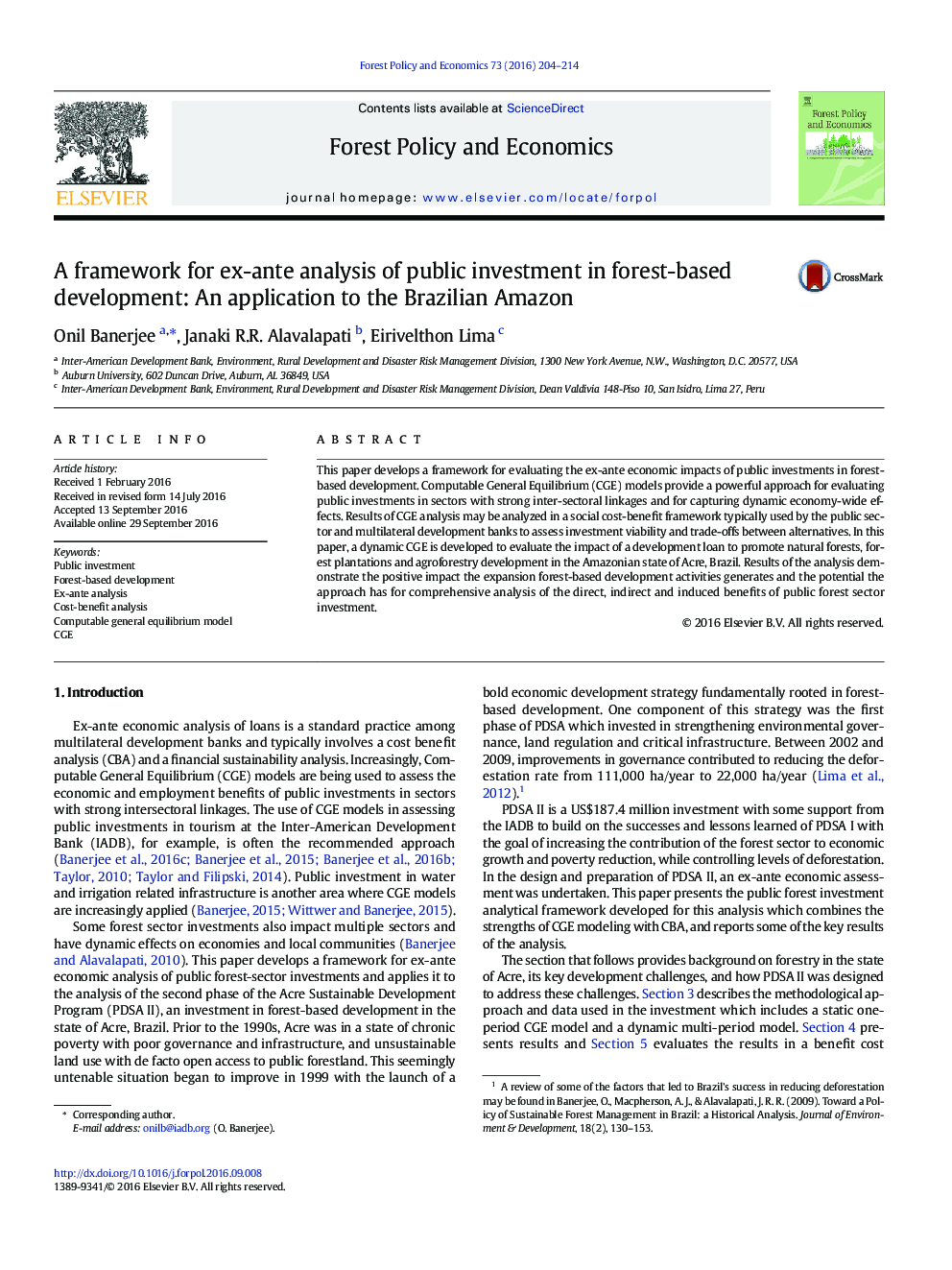| Article ID | Journal | Published Year | Pages | File Type |
|---|---|---|---|---|
| 6459852 | Forest Policy and Economics | 2016 | 11 Pages |
â¢This paper develops a framework for evaluating impacts of public investments in forest-based development.â¢The approach enables quantification of direct, indirect and induced benefits of forest sector investment.â¢Results generated with a general equilibrium model are analyzed in a cost benefit analysis.â¢The approach is applied to a US$187.4 million investment in Acre, Brazil.â¢The analysis results in a net present value of USD$1.9 M with positive income and employment effects.
This paper develops a framework for evaluating the ex-ante economic impacts of public investments in forest-based development. Computable General Equilibrium (CGE) models provide a powerful approach for evaluating public investments in sectors with strong inter-sectoral linkages and for capturing dynamic economy-wide effects. Results of CGE analysis may be analyzed in a social cost-benefit framework typically used by the public sector and multilateral development banks to assess investment viability and trade-offs between alternatives. In this paper, a dynamic CGE is developed to evaluate the impact of a development loan to promote natural forests, forest plantations and agroforestry development in the Amazonian state of Acre, Brazil. Results of the analysis demonstrate the positive impact the expansion forest-based development activities generates and the potential the approach has for comprehensive analysis of the direct, indirect and induced benefits of public forest sector investment.
